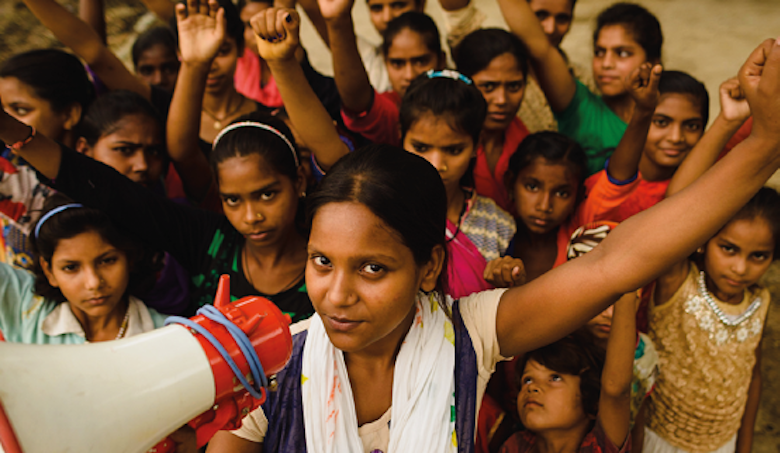Final Term Evaluation and Learning Review of the Girls Advocacy Alliance
The Girls Advocacy Alliance (GAA) is an initiative of Plan International Netherlands, Defence for Children – ECPAT Netherlands and Terre des Hommes Netherlands, and is funded by and in partnership with the Dutch Ministry of Foreign Affairs. The GAA is a five-year programme (2016–2020) whose goal has been to ensure that, by 2020, girls and young women in ten countries in Asia and Africa would no longer face gender-based violence and economic exclusion.
Final Term Evaluation
The ‘Advocating for Girls’ Rights’ programme by the Girls Advocacy Alliance (GAA) has aimed to combat gender-based violence (GBV) and the economic exclusion (EE) of girls and young women (GYW). The programme encompassed ten countries, two regional, one international and a Netherlands component, and was carried out during 2016-2020.
The Final-Term Evaluation (FTE) provided an independent evaluation of the performance and results of the GAA programme for both learning and accountability purposes. The evaluation focused on assessing the achievement of the GAA’s strategic goals and its contribution to strengthened capacity for lobby and advocacy (L&A), investigating its relevance, effectiveness, efficiency and sustainability.
The FTE covered all fourteen programme components of the GAA, with in-depth case studies of four
programme components, namely Ghana, Ethiopia, international and the Philippines. It applied a wide
range of methods, including a combination of outcome harvesting (OH) and contribution analysis (CA) to the case studies, desk review, a survey, interviews, and sense-making for joint learning.
Data collection for the evaluation was severely affected by the Covid-19 global outbreak, and most of the data has been collected distantly, using all available online technology and platforms as well as
telephones.
Learning Review
The programme worked closely with young people, especially girls and young women and their civil society organisations (CSOs), to strengthen their capacities in becoming legitimate actors in decision-making spaces and processes, from local to global levels. As part of this, youth advocates were supported to use regional and global monitoring and accountability mechanisms to hold their governments accountable on their human rights.
The youth advocacy component of the GAA is one that has matured and strengthened over time. This learning review aimed to provide the space and opportunity to reflect on these components and to document the diverse models and approaches taken across the ten GAA countries. It also set out to look specifically at the global-level advocacy pathway, which was a key pillar of the GAA’s approach and Theory of Change, to understand how it contributed to progressing, and strengthening, youth advocacy at the national and sub-national levels.
Importantly, the learning review also puts the voices and perspectives of the youth advocates themselves at the centre. It seeks to understand how the youth advocates may have been personally impacted through their participation and how they perceive their own impact as advocates, and to document their future aspirations and plans.
PROGRAMME BACKGROUND
The Girls Advocacy Alliance is committed to fighting violence against girls and young women and increasing their economic participation in developing countries. Violence and economic exclusion are closely linked. Particularly due to child marriages, sexual violence, trafficking in women, and the worst forms of child labour, girls are dropping out en masse in secondary and vocational education. Their chances of ever getting a 'decent' job are minimal. And vice versa; without income and independence, they are more vulnerable to violence.

